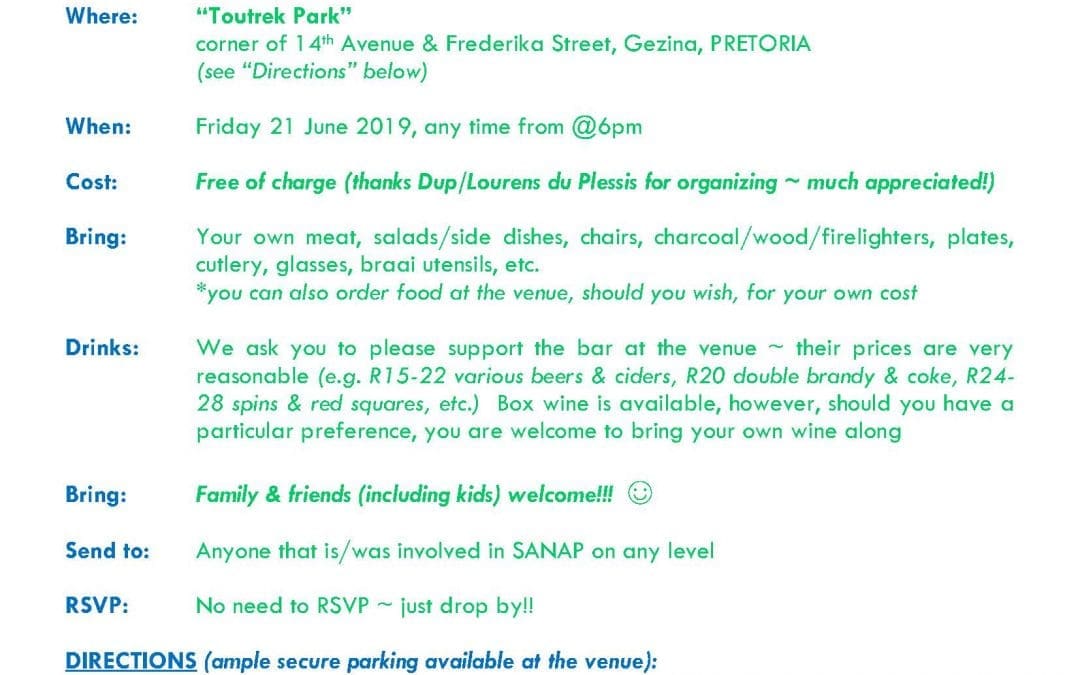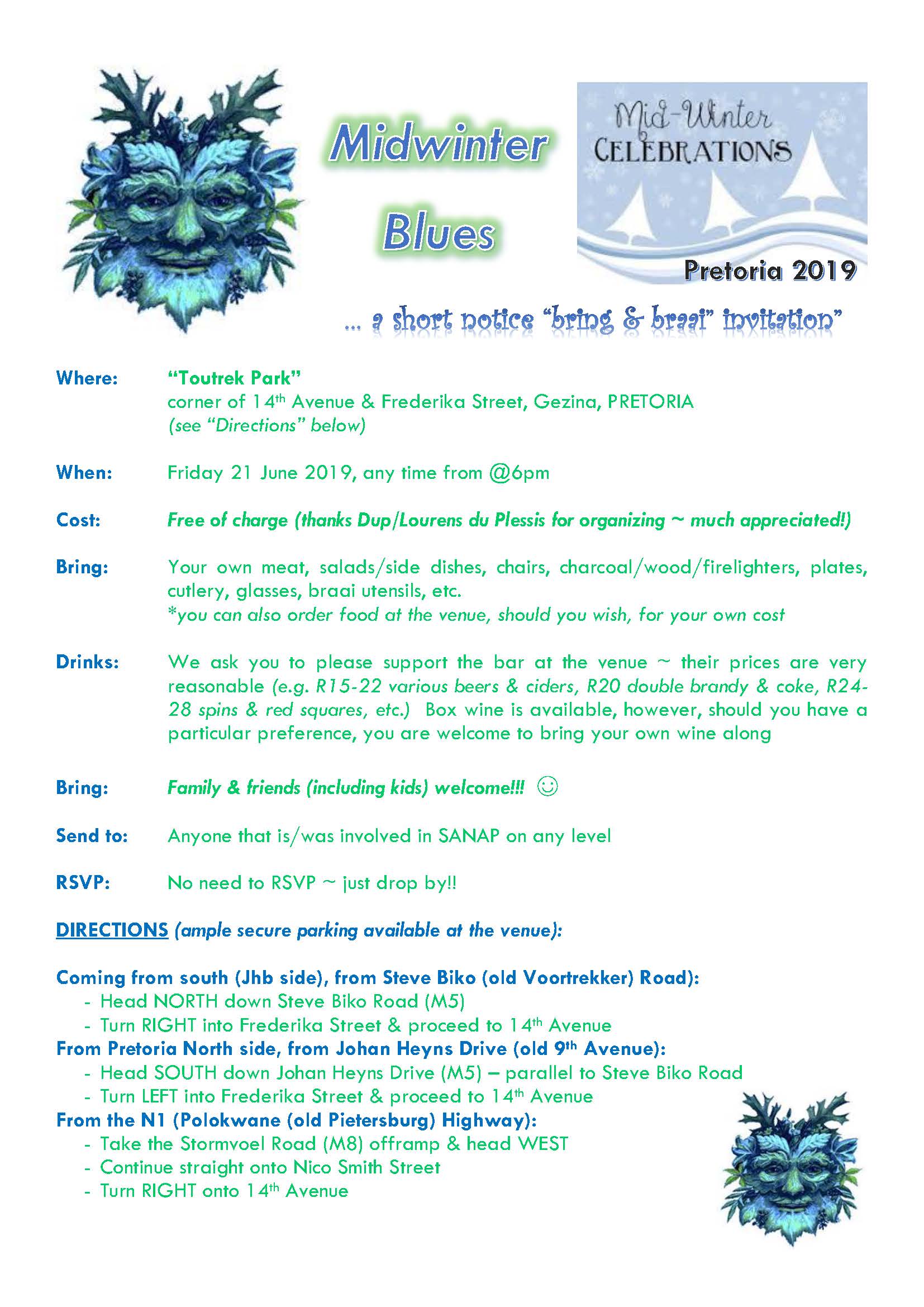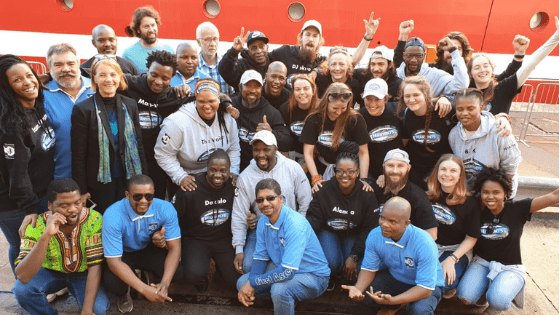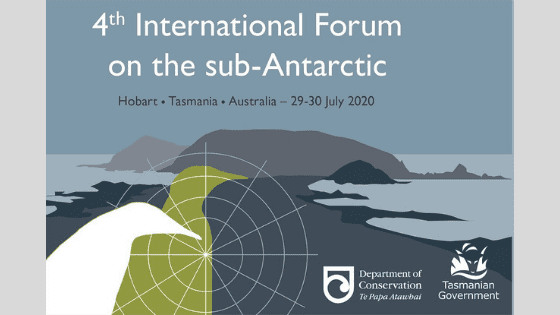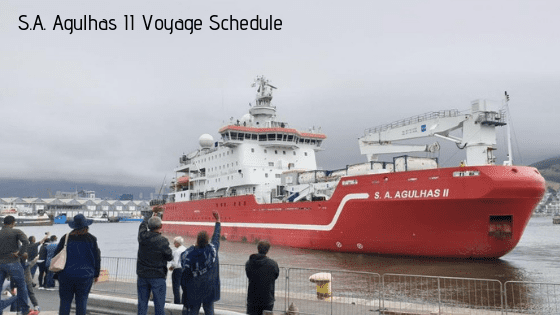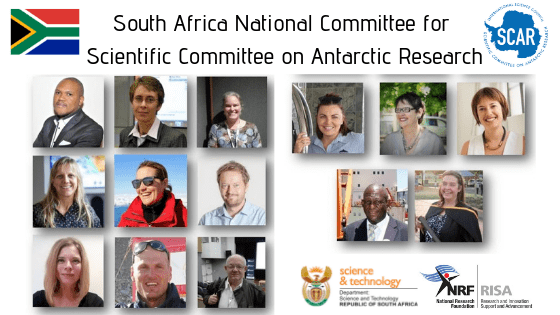
by Fishgate@sanap | Jun 21, 2019 | Antarctica, Current Event, Gough Island, Important Dates, Marion Island, News, Overwintering Team, SANAE, SANAP
Mid-Winter is celebrated right across Antarctica by all the nations & stations. It is the 0ldest tradition in Antarctica and refers to the Winter Solstice (or hibernal solstice). It occurs when one of the Earth’s poles has its maximum tilt away from the Sun. It happens twice yearly, once in each hemisphere (Northern and Southern). For that hemisphere, the winter solstice is the day with the shortest period of daylight and longest night of the year, when the Sun is at its lowest daily maximum elevation in the sky.
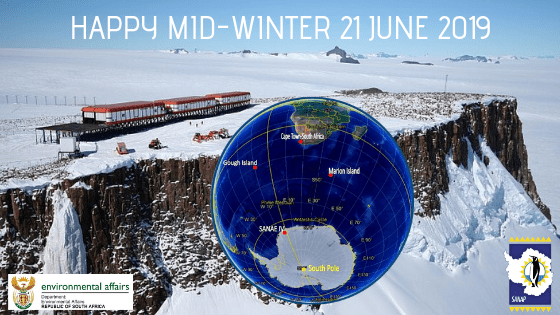
At the pole, there is continuous darkness or twilight around the winter solstice. Its opposite is the summer solstice.
The winter solstice occurs during the hemisphere’s winter. In the Southern Hemisphere, this is the June solstice (usually 20 or 21 June). Although the winter solstice itself lasts only a moment, the term sometimes refers to the day on which it occurs. Other names are “midwinter”, the “extreme of winter” (Dongzhi), or the “shortest day”.
So, for Antarctic Expeditioners / Overwinterers the worst is over with regards to dark (lack of light and sunlight).
Happy Mid- Winter to all – share this email far and wide.
From all of us
Jasmine Arnold
Office Administrator to The Ship’s Operations Manager | Directorate: Southern Oceans & Antarctic Support | Office address: East Pier, Waterfront | Direct no: 021 405 9485 | Switchboard: 021 405 9400
Mid-winter Event Pretoria, South Africa – organised by Carol Jacobs :


by Fishgate@sanap | May 16, 2019 | Marion75, News, SA Agulhas II, SANAP, Southern Ocean
The S.A. Agulhas II arrived in Cape Town yesterday, 15 May 2019, after being away for 34 days.
The vessel returned with the 75th Marion Island overwintering team, all take-over scientists (land-and ship based) and take-over personnel.
Marion75 departed last year on 06 April 2018 and they are now reunited with family and friends after approximately 13 months.
Click here to see who was on this team and more about the different scientific groups (land-and ship based).
Note that there are more institutions involved in take-over science on the island, not mentioned in this video such as the Biocomplexity Project (University of Johannesburg) and Observing Dawn in the Cosmos (University of KwaZulu Natal). These projects does not have personnel overwintering on the island.
Marion75 and take-over personnel, addressed by the Deputy Director-General Oceans and Coasts, Judy Beaumont:

L-R (front): Dakalo Gangashe (Base Engineer), Maliviwe Mnengisa (Medic/Team leader), Zinhle Shongwe (Assistant meteorologist), Stephan Keys (Birder), Dani Keys (Birder), Dineo Mogashoa (Winder/Botanist); (middle) Oyena Masiko (Birder), Vhulahani Manukha (Space Engineer), Mavis Lekhesa (Radio Technician), Michael Taunyane (Diesel Mechanic / Deputy Team Leader). Sechaba Nyaku (Senior Meteorologist). Michelle Thompson (Birder). Monica Leitner (Assistant ECO), Liezl Pretorius (Sealer/Deputy Science Team Leader), Elsa van Ginkel (Winder/Botanist), Bongekile Kuhlase (Botanist); (back) Abuyiselwe Nguna (Geomorphologist/Science Team Leader), Jabulani Thabede (Chef), James Burns (Assistant meteorologist), Charlotte Heijnis (Senior ECO), Sean Morar (Birder). Welly Qwabe (Sealer), Michael Voysey (Killer whaler/sealer), Marike Louw (Botanist).
Anché Louw, Antarctic Legacy of South Africa, 16 May 2019.

by Fishgate@sanap | May 3, 2019 | Announcement, Important Dates, SANAP, Southern Ocean, sub-Antarctic

Date: 29 – 30 July 2020
“Come and discuss the challenges facing the sub-Antarctic in a changing world and share ideas for the future”.
Sessions include:
- climate
- conservation
- biosecurity
- geoscience
- tourism
- fishing
- heritage
- connectivity
- management challenges.
Website: Click here.
Follow subant2020 on Twitter!

by Fishgate@sanap | Mar 25, 2019 | Antarctica, Important Dates, SANAE, SANAP, Science, Southern Ocean, sub-Antarctic

Interested in the South African Research and Supply Vessel, the S.A. Agulhas II 2019 Voyage Schedule?
Click here.

by Fishgate@sanap | Mar 15, 2019 | Antarctica, News, Research, SANAE, SANAP, Science, Southern Ocean
Welcome to Cape Town SANAE57 team, take-over personnel, Weddell Sea Expedition crew, Department of Public Works personnel and Nolitha Construction (responsible for the refurbishments of the SANAE IV base), the Ultimate Helicopter Crew and the S.A. Agulhas II’s Captain and Crew.
The 57th South African National Antarctic Expedition (SANAE) team has returned to Cape Town, after 15 months away from home (see photo below). This team had to stay a bit longer at SANAE IV than usual, due to the longer take-over in order to accommodate the Weddell Sea Expedition, that was incorporated in the 2018/2019 Antarctica Cruise.

L-R (Back): Stephanus Schoeman (RADAR Engineer), John Skelete (Diesel Mechanic), Bo Orton (Electrician), Will Jelbert (Doctor), Forster Mashele (VLF Engineer), Sabelo Biyela (Diesel Mechanic); (front) Hloni Rakoteli (Communications Engineer), Lux Tanyana (Base Engineer), Elias Seabi (Meteorological Technician) and Cobus van der Merwe (Neutron Engineer).
This Weddell Sea Expedition was funded by the The Flotilla Foundation and the S.A. Agulhas II chartered a team of scientists into the Weddell Sea, for extensive scientific exploration on and around the LarsenC ice shelf and the A68 Iceberg. Click here to meet the South Africans that was part of this expedition.
The Weddell Sea Expedition also involved the search for Sir Ernest Shackleton’s ship, the Endurance (click here for more information), but due to unfavourable weather conditions and the loss of the AUV (automated underwater vehicle) the search was ended where after the ship headed back to Penguin Bukta where overwintering members (S57) and take-over personnel of SANAE IV boarded the ship.
The welcoming ceremony was led by Mathibela Selepe (Department of Environmental Affairs, Chief Engineer: Telecommunications and Instrumentation) and welcoming speech delivered by Mbulelo Dopolo (Department of Environmental Affairs, Branch: Oceans and Coasts, Director: Earth Systems Strategies).
Anché Louw, Antarctic Legacy of South Africa, 15 March 2019
https://www.facebook.com/AntarcticLegacySA/videos/vl.317523262441303/800923453598499/?type=1

by Fishgate@sanap | Mar 14, 2019 | Announcement, Antarctica, Marion Island, News, Research, SANAP, Science, Southern Ocean
South Africa has been involved in Antarctic research since the geophysical year of 1957. The first 10 years of South Africa’s science and research in the Antarctic is highlighted in an article by DG Kingwell, at that stage the secretary of the South African Scientific Committee for Antarctic Research (SASCAR).
The Antarctic Research of South Africa is part of The International Science Council (ISC), South Africa.
South Africa is a national member of ISC through the National Research Foundation (NRF) and the Human Sciences Research Council (HSRC) supported by the Department of Science and Technology (DST). The South African ISC -Secretariat serves the scientific community and the ISC scientific unions and affiliates to which South Africa adheres. The SA ISC Secretariat provides support and organisational services for the ISC National Board of SA, and to the SA ISC National Committees to advance South Africa’s position in international platforms. The total membership of these committees is in excess of 200 scientists. Approximately 100 South Africans serve on ICS-related commissions and working groups. The ISC activities in South Africa are focused on the following principals:
- Science-for-policy: Stimulate and support national and international scientific research and scholarship, and to communicate science that is relevant to national and international policy issues;
- Policy-for-science: Promote developments that enable science to contribute more effectively to major issues in the national and international public domain;
- Science-for-society: Stimulate science engagement with society;
- Scientific freedom and responsibility: Support the free and responsible practice of science;
- Adherence: Support committees through payment of ISC membership dues.
South Africa Science and Research is also part of the Scientific Committee on Antarctic Research (SCAR) where the committee members will represent South Africa at SCAR meetings.
The new National Committee has been announced in a letter by Tracy Klarenbeek – Professional Officer, Knowledge Advancement and Support (KAS) and their first meeting took place at Stellenbosch University on 6 March 2019.
Dear SANAP Community,
It gives me great pleasure in sharing the names of the individuals selected to represent us all at SCAR. Of course, these individuals will rely heavily on inputs from the entire community, so I sincerely hope that you will be available to support them in their endeavours. Members of the community that are not an the steering committee are still strongly encouraged to participate in SCAR and SCAR-related activities. The DST and the NRF are planning a follow-up meeting with the whole community, hopefully by the middle of the year (academic and other schedules permitting), so as to give feedback on a number of initiatives ongoing that will possibly impact on us all, including plans for current and future SA participation in SCAR. We look forward to seeing you there.
The final list is below, the details of which will be communicated to SCAR in due course. Professor Bettine van Vuuren was nominated as the Committee Chair, Tracy Klarenbeek as Vice-Chair and Dr Gilbert Siko representing the Department of Science and technology.
Life Sciences Standing Committee of SCAR
- Thulani Makhalanyane (South African Representative)
- Bettine van Vuuren
- Anne Treasure

Physical Sciences Standing Committee of SCAR
- Sandy Thomalla
- Sarah Fawcett (South African Representative)
- Stefan Lotz

Geosciences Standing Committee of SCAR
- Christel Hansen
- Werner Nel
- Geoff Grantham (South African Representative)

Social Sciences and Humanities Standing Committee of SCAR
- Anché Louw
- Ria Olivier (South African Representative)
- Charne Lavery

Please give this committee your support in their efforts to take South African science to the world via SCAR.
